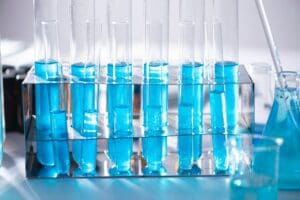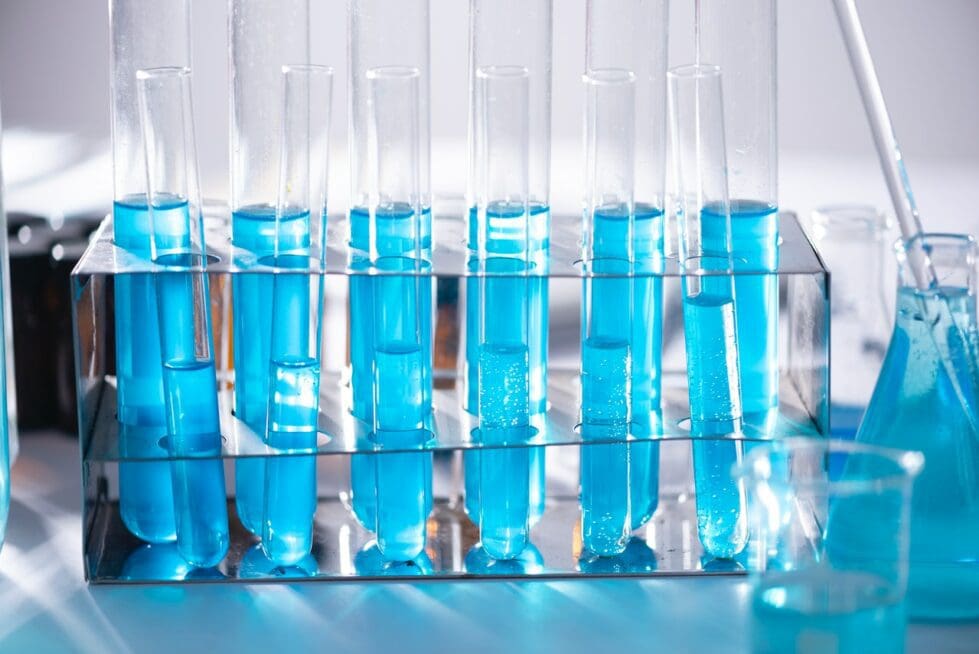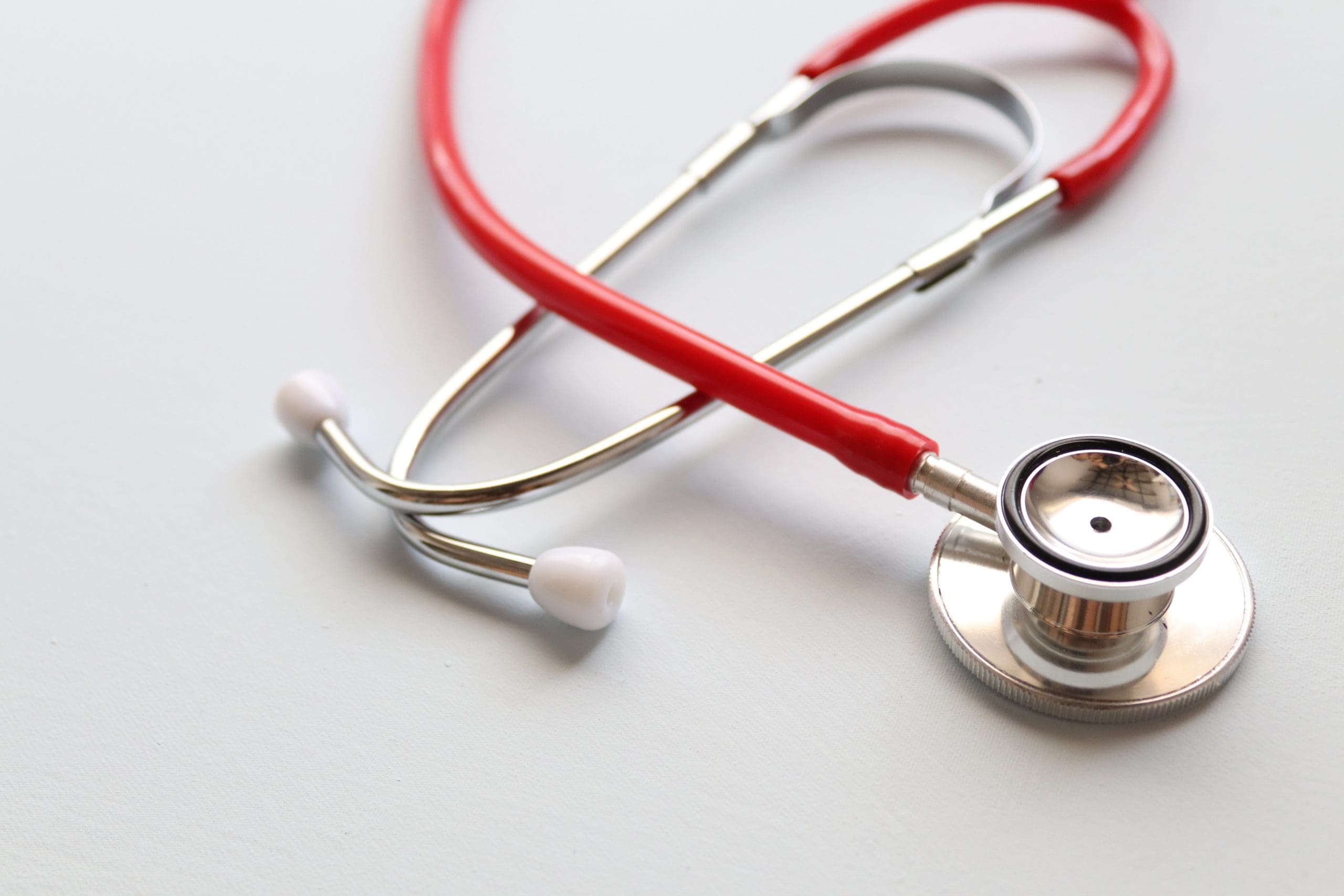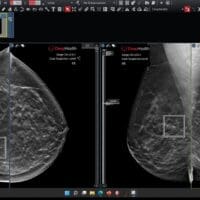

Delaware is well-positioned to take advantage of its growth in biosciences, but still needs investment, a banking committee was told. Photo by Chokniti Khongchum/Pexels.
The First State’s growing biosciences industry has its roots in the 1992 creation of the Delaware Technology Park, state life sciences and technology advocates told a Senate committee today.
Today, that sector of the economy is responsible for 11,000 jobs with $2 billion in gross domestic product, said Mike Fleming, president of DelawareBio, which advocates for and offers support to life science companies.
The 30-year growth in biotech companies also has spurred a growth in investment resources and federal funding, Fleming said, as well as a 64% surge among those who earn degrees in fields related to bio businesses.
A 2021 report from DelawareBio said that the state has seen a 65% growth of new startups in the biotech area.
“That has not historically been an area of strength for Delaware, small startup science and technology companies,” he said. “We’ve been fortunate historically to be home to big companies. I think what you’re going to see increasingly is a transformation of our economy is moving to more shots on smaller companies, many of them led by folks who worked in the market or a company.
“That’s the future of the state.”
All of that means Delaware is well-positioned to see growth in advanced manufacturing of drugs and more related businesses, as well as additional start ups, he told the Senate Banking, Business, Insurance and Technology committee.
Biosciences growth


Mike Fleming
The Delaware Technology Park, a 501c3 nonprofit created by then-Gov. Mike Castle, was meant to promulgate the growth of technology businesses in the state in a partnership with the University of Delaware, the state and the private sector, said Mike Bowman, CEO of the technology park.
It would go on tp be one of the strands in a web of university, government and business resources trying to turn bioscience ideas into marketable products and profits.
The center first focused on advanced materials but then technology began moving toward life sciences, Bowman said.
The park once boasted one building; then five on the edge of UD’s campus, and now it’s moved into the Star Campus, Bowman said.
During the time, he said, 150 companies have been started from scratch and four have gone public. About 16,000 jobs were created and about $1 billion came through investment grants.
Along the way, the sector spawned DelawareBio and The National Institute for Innovation in Manufacturing Biopharmaceuticals at UD. Niimbl in 2021 received $153 million federal funding to foster the manufacturing of drugs.
Delaware’s growth in biosciences also involves UD’s Office of Economic Innovation Partnership and the Small Business Development Center, Bowman said.
The small business center helps start, scale and sustain small businesses, he said.
The center alone has about 800 clients a year, 2,000 jobs and $14 million capital, he said.
In recent years, talk about the industry has also lead to concerns about financial health and the SBDC has now partnered in the creation of a six-floor, 100,000-square-foot center of excellence at UD that will the College of Engineering, the College of Business, individual sciences such as cybersecurity, artificial intelligence and augmented reality.
It’s allowed that group to help startups and it’s allowed UD students to work in those business and come out of school with great resumes.
ALSO TODAY: Education leaders fight bills adding days off for teachers
Part of what the center does is focused on helping underserved communities and people learn more about finance so they, too, can get a piece of the pie.
Fleming said DelawareBio exists to make the state the best place possible for life science innovation, and it does it three ways.


Mike Bowman
One is high touch support, working with members to connect them with resources and connections to others to help grow the business.
DelawareBio has 165 members. About 95 are core science companies or businesses that range from pharmaceutical companies to enterprises that are developing products in the value chain in something like diagnostics or instrumentation, he said.
Its members also include businesses with specific expertise that support life science clients, including law firms dealing with intellectual property, accounting firms, industrial service providers, marketing companies and more.
“I think one of the real values Delaware offers from an economic standpoint is our ability to collaborate across that ecosystem of partner organizations,” Fleming said.
An example of a company that has benefitted from Delaware’s biosciences focus is Prelude Therapeutics, founded by Kris Vaddi, who had worked at Incyte.
He started in 2016 at Delaware Technology Park with three employees. In 2018, the company grew enough to move into Innovation Space.
In 2020, it went public.
This year, it will move its 100-plus employees into a new 81,000-square-foot headquarters at Chestnut Run Innovation and Science Park.
At one point, the company was valued at more than $1 billion, Fleming pointed out, but that fluctuates.
“The capital markets have been brutal toward science and technology markets,” he said.
He pointed to the collapse of Silicon Valley Bank in California. It served a lot of tech companies.
There aren’t many state success stories like Prelude, Fleming and Bowman noted.
Most of DelawareBio’s members have one to five employees, Fleming said.
“There’s a lot of risks, obviously, in startups and there’s a lot of turnover,” he said.
Collaboration is what’s going to fuel success, Fleming said.


Betsy Price is a Wilmington freelance writer who has 40 years of experience.
Share this Post








